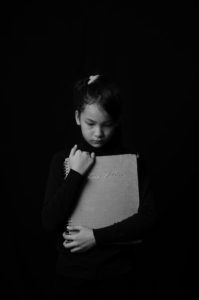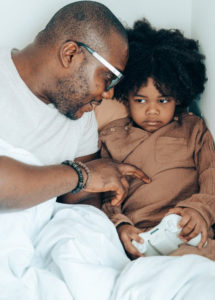Divorce Care for Children
Divorce Care for Kids
Kids are unfortunate victims of parent divorce and can be impacted in many ways. We know no parent wants to deliver this news to their child and it can be difficult to navigate the effects and reactions from your child. If you are divorced or in the process, it’s important to give your child an outlet to process their feelings apart from you. Even loving supportive parents, may need another adult to speak into their child’s life as kids have a variety of reactions and may not want to share with you due to loyalty to both parents, wanting to protect your feelings, or even anger directed at the parents about the decision.
Kids are scared and confused.
Kids find their sense of security in the parent child relationship and within the family. When a family is split, the child feels suddenly uncertain about how things might change. This goes from logistical concerns such as: Which parent will I see and when? Will I have to live in two homes? Will I be able to have my things that I want with me where I live? Will I have to change schools? Will I still be able to see my friends? …To more emotional concerns: Will my parents still each love me the same? Do I still have a family if they have split? Is it my fault? Will it always feel this terrible?

We know you wish you could protect your child from this pain, and of course, you can assure them that they are still loved and you care about their feelings. The pain is unavoidable when a family splits and often the best way to help them is to give them safe people to talk to and work through these feelings.
Kids are sad and may feel personally hurt by your divorce.
Even in situations in which your child may have prompted a desire for divorce, there are unanticipated emotional consequences. We have seen families in which the parent relationship was unhealthy enough that kids asked their parents to get divorced, yet there is still emotional backlash when their parents make that decision. Kids may alternately blame themselves regardless of how many times you explain to them that it’s not their fault. Divorce can negatively impact their sense of self-worth.

Kids may be angry and rebel.
Even if you feel your ex is more responsible for the divorce, you may find yourself the target of your child’s anger. Remember not to personalize these feelings as they all stem from hurt over the situation and may not have as much to do with you. Children may need an outlet to process these feelings, particularly as they are hard to tolerate as the parent. Remember anger related to the pain of divorce is not a free pass for allowing bad behavior in your child. If your child is rebelling its important to address it early and in a healthy way, and this is one area in which a counselor can help. It can be tempting, particularly if you feel guilty about the decision to divorce and its impacts, to allow your child to behave badly, but this is an unhealthy way for them to deal with their feelings and can lead to bigger problems the longer it is allowed to continue.

A Few Tips for Parents
Never bad mouth your ex to your child or allow bad things to be said about them in front of your child. It may be tempting even to acknowledge if you feel your ex is behaving badly or prompted the divorce, but the vindication you might feel in the moment, is not worth the emotional damage caused for your child. Your child will only be hurt by feeling like they need to take sides or defend one parent and we should never put them in this position. Remember they love both parents, and that is healthy for them.
Don’t interfere or try to damage your child’s relationship with your ex. Your children need a healthy attachment with their other parent, even if you feel intense anger and resentment about their behavior. If something upsetting happens when your child is visiting your ex, try not to play investigator (which puts your child in an uncomfortable position); instead ask your child how it made them feel and if they want to talk about it.
It’s not your job to make excuses for your ex, but keep in mind how your answers for their behavior may impact your child. For example, if the other parent fails to arrive for parenting time, acknowledge that your child is sad without inadvertently dropping hints about the time being less important to the other parent. Ultimately, when one parent attempts to alienate a child from the other, it almost always backfires with resentment from the child toward that parent (even if only as an adult). Be mindful about loving your child MORE than you might hate your ex.

Don’t allow Bad behavior as an acceptable response to your divorce. Help your children process their hurt and anger in healthy way. Don’t allow them to treat you poorly out of guilt and pity for their struggle. Seek professional help to address behavior issues early and consistently.
Refrain from sharing your hurt feelings with your child. It’s ok to acknowledge that you are hurting or may feel angry with your ex, but be careful to share in an age appropriate way and don’t make your child feel like they need to care for your emotional needs. Talk to supportive friends, family, or your own counselor rather than your child about your divorce.

